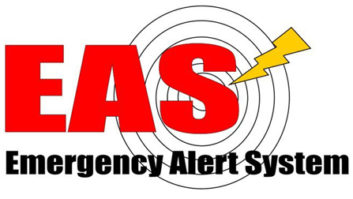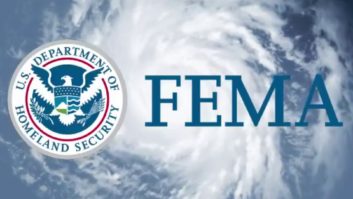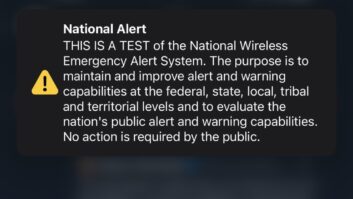FEMA’s IPAWS office addressed an unplanned outage in its EAS feed this week.
The Required Weekly Tests have continued as scheduled after the June 30 equipment deadline so that station engineers can confirm whether their EAS encoders/decoders are working properly and can decode a Common Alerting Protocol-formatted alert.
However Monday, the alert did not go out for at least two time zones, Central and Mountain.
Neil Graves of the IPAWS Engineering Office said what often happens in these instances is when the IPAWS office finds out that an alert did not go out, IPAWS goes through a series of diagnostics and troubleshooting to determine what went wrong. Then the missed alert is usually retransmitted manually.
Posting on the SBE-EAS Listserv, Graves said the Required Weekly Tests were designed as a temporary solution, meaning this functionality wasn’t built-into the IPAWS-OPEN application, but resides on a computer outside of the FEMA/DHS networks.
FEMA is looking for a more permanent solution to continue CAP-EAS testing.
Engineers have suggested to FEMA that having some kind of redundancy in the works would be good for all EAS participants. Harold Price of EAS box manufacturer Sage Alerting Systems posted a message indicating the event was the first outage of the public feed that he’d been aware of and suggested it may be good idea to have a status site, hosted on a different server, that would act as a place for stations and vendors to check on the current IPAWS server status.










